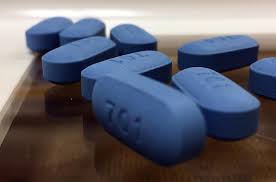Source: timestelegram.com
Preventing HIV just got cheaper for many New York residents.
The state Department of Financial Services has directed health care insurance plans to cover the full cost of pre-exposure prophylaxis, or PrEP, which can prevent HIV infection during sex or shared needle use.
PrEP involves taking the pill Truvada daily and seeing a doctor for testing every three months. It can lower the chances of infection from sex by more than 90 percent and from shared needle use by more than 70 percent, said Emma Corbett, vice president of marketing, communications and engagement for Planned Parenthood Mohawk Hudson, which offers PrEP.
The new policy means that people at risk for HIV infection covered by state-regulated health plans won’t face copayments, co-insurance or deductibles to receive the care. And that removes one of the biggest barriers that keeps people from using PrEP, Corbett said.
“Whether or not you can afford your medication is often a reason patients decide not to seek care or discontinue existing care,” she said in an email. “We’re encouraged by this action and are grateful that the governor has taken steps to ensure there is adequate insurance coverage for medications like PrEP because financial barriers hinder access for patients that are taking preventative steps to protect themselves.”
Copayments for people in employer-sponsored, health exchange and individual market plans tend to average around $60 a month for Truvada, said Steve Wood, director of insurance programs for ACR Health, which offers PrEP. And many plans have deductibles that must be met before drug coverage begins, he said. Truvada costs $2,000 for a 30-day supply, he said.
“If you can get if for free, … that’s great,” he said. “That opens it up for tons and tons of people.”
But money isn’t the only reason everyone at high risk isn’t on PrEP or isn’t using PrEP in a way to provide maximum protection, Wood said.
“I think without support and without a good consistent medical provider or some good social supports, I’m not sure how compliant people are with it,” he said. “It’s a difficult medicine to take. It has side effects that you’re going to have to live through for a couple weeks or a couple months. And it’s an everyday pill.”
But it’s worth it for those who stick with the regimen, he said.
“The reality is PrEP is going to save your life. It’s going to keep you from becoming infected with HIV,” Wood said.
Wood said he doesn’t know how many good candidates for PrEP actually choose to go on it in the first place. He did say the two most compliant groups seem to be injection drug users — who are used to taking a drug every day — and gay men over age 50 who, he speculated, remember all the deaths during the AIDS epidemic.
But HIV is not an issue of a particular group or two.
“The impact of HIV is felt by all communities and people of all backgrounds,” Corbett said in her email. “The disease does not know race or gender or sexual orientation. Especially in a time where so many Americans are struggling with addiction and other elevated risk behaviors, it is important to be proactive and PrEP is an effective tool for staying HIV-free.”
But Corbett reminded patients that PrEP does not prevent other sexually-transmitted diseases, and they should still use external or internal condoms during sex.
Gov. Andrew Cuomo announced in 2014 a campaign to end AIDS in New York by the end of 2020. This new policy is in line with that initiative.
At the same time, the state announced the new rules for PrEP coverage — that insurers must now issue member ID cards making it clear whether the plan is subject to state regulations and consumer protections. And the financial services department is putting out consumer information to help transgender New Yorkers understand and access their coverage for gender-affirming care.
